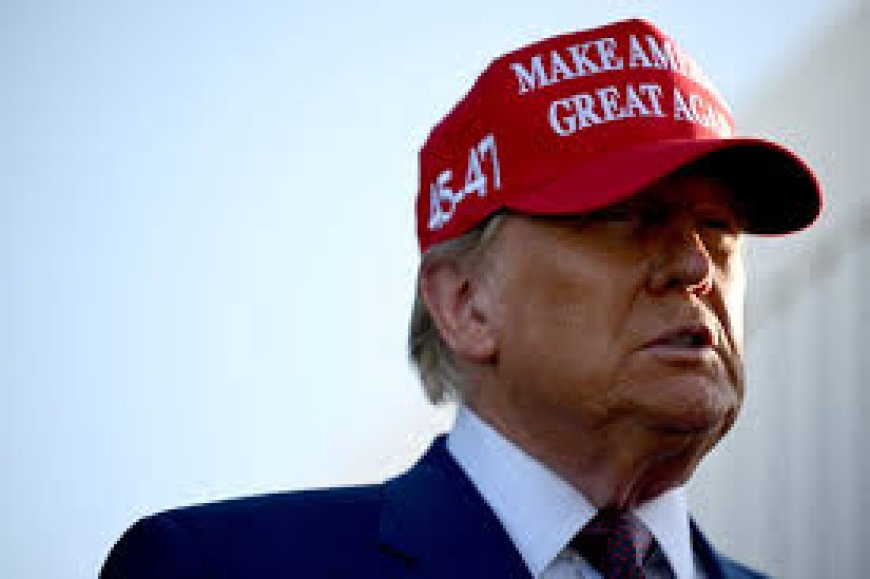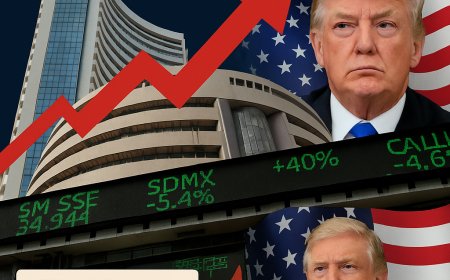Trump is returning to Britain for a rare second state visit—here’s why it matters
Donald Trump will make a rare second state visit to Britain, signaling strategic ties ahead of the 2024 U.S. election. Here's why the markets, policymakers, and investors are paying attention.

A Second State Visit: A Historical Exception
Former U.S. President Donald Trump is set to return to Britain for a second state visit, making him one of the very few American leaders to receive such an invitation twice. The visit, scheduled for late July 2025, comes amid renewed interest in transatlantic economic and geopolitical cooperation. While largely ceremonial on the surface, the visit is shaping up to carry significant diplomatic and economic undertones, especially in light of the evolving global trade environment, security dynamics, and the upcoming U.S. presidential election.
This move by the British government, backed by King Charles III and Prime Minister Emily Ashcroft, is seen as an effort to reinforce Anglo-American ties at a critical time when the UK is attempting to reposition itself post-Brexit and amid new shifts in U.S. foreign policy direction.
Political Symbolism Meets Strategic Calculations
Trump’s previous state visit in 2019 was marked by grandeur, protests, and cautious diplomacy. However, this second visit carries a different tone. With Trump leading the Republican nomination race for the 2024 presidential election—and currently neck-and-neck with President Joe Biden in polls—the UK’s invitation appears as a strategic hedge against potential future leadership in Washington.
“This isn’t about endorsing Trump but acknowledging the possibility of his return to power,” said Dr. Helen Whitmore, Professor of Transatlantic Relations at King’s College London. “Britain wants to maintain a working rapport with whoever might be occupying the White House in 2025.”
Trump is expected to hold meetings with senior British officials, attend a banquet hosted by the monarch, and visit joint U.S.-UK military facilities. Notably, he will also engage with leaders of British industry, signaling that economic cooperation will be a centerpiece of this visit.
Economic Context: Trade, Tariffs, and Tech
The UK and U.S. have long flirted with a bilateral trade agreement post-Brexit, but substantive progress has been stalled. With Trump’s known preference for bilateral over multilateral deals, many investors are speculating that a Republican victory in 2024 could revive UK-U.S. trade negotiations.
The visit also coincides with heightened global trade uncertainty, particularly as China tightens its grip on supply chains and tech exports, prompting Western nations to consider reshoring or near-shoring key industries.
“If Trump uses this visit to underscore support for a future U.S.-UK trade pact, sectors like pharmaceuticals, aerospace, and data services could benefit,” said Mark Doyle, senior strategist at Avondale Markets. “Markets will be watching his rhetoric closely.”
Moreover, Trump’s renewed attention to energy independence and fossil fuels may resonate with parts of the UK energy sector looking for transatlantic collaboration on LNG infrastructure and deregulated oil exploration.
Geopolitical Stakes: NATO, Ukraine, and China
The geopolitical calculus is also central to this visit. Trump has been a vocal critic of NATO funding imbalances, and his possible return to power could reshape the alliance’s posture, particularly concerning the ongoing war in Ukraine and rising tensions in the Indo-Pacific.
UK policymakers are expected to press Trump on continued U.S. support for Ukraine, especially given his prior ambivalence toward America’s role in European security. At the same time, shared concerns about China’s assertiveness are likely to feature in private discussions, especially in the context of cybersecurity, rare earth access, and Taiwan.
Market Reactions: Cautious Optimism
The announcement of Trump’s state visit has already prompted modest movement in British equity markets, with the FTSE 100 gaining 0.3% intraday on Monday following the formal confirmation. Defense stocks, including BAE Systems and Rolls-Royce, saw marginal upticks amid speculation of future U.S.-UK defense deals.
Currency markets have remained stable, though some analysts warn that any strong statements from Trump on tariffs or Fed policy during his visit could spark short-term volatility in USD-GBP pairs.
“This is a diplomacy-heavy event, not a policy-setting one—but in today’s interconnected markets, perception moves money,” noted Emma Linwood, foreign exchange strategist at Barclays Capital.
Investor Outlook: Watching for Signals
While no immediate policy changes are expected, investors will be parsing Trump’s tone and content for early clues on a second-term agenda. His stance on UK trade, NATO burden-sharing, China, and tech regulation could all offer predictive signals for U.S. foreign economic policy.
“Trump’s visit is more than a royal dinner—it’s a potential preview of future U.S. engagement with Europe,” said Dr. Julian Rees, geopolitical analyst at Global Insight Partners. “Investors should see this as a sentiment indicator, especially in sectors exposed to transatlantic policy.”
Ceremonial, But Not Without Consequence
While Trump’s return to the UK is officially ceremonial, the visit is expected to reverberate far beyond Buckingham Palace. For British and international observers, it’s an opportunity to recalibrate expectations about the future of U.S.-UK ties, especially under the possible return of a Trump presidency.
With trade, security, and tech partnerships in flux, both governments are playing a strategic game of anticipation, ensuring they’re prepared for whatever direction 2025 politics might take. Whether this visit results in direct policy action or simply strengthens backchannel diplomacy, it is undeniably a milestone moment in transatlantic relations.
What's Your Reaction?
 Like
0
Like
0
 Dislike
0
Dislike
0
 Love
0
Love
0
 Funny
0
Funny
0
 Angry
0
Angry
0
 Sad
0
Sad
0
 Wow
0
Wow
0












































































